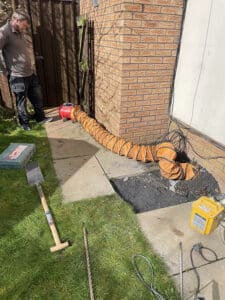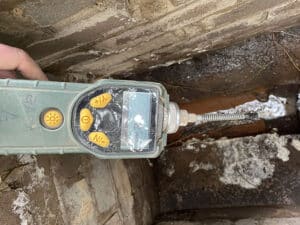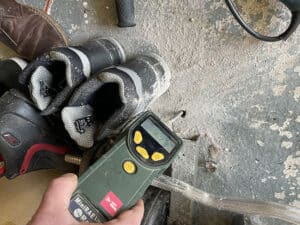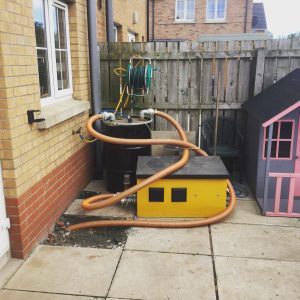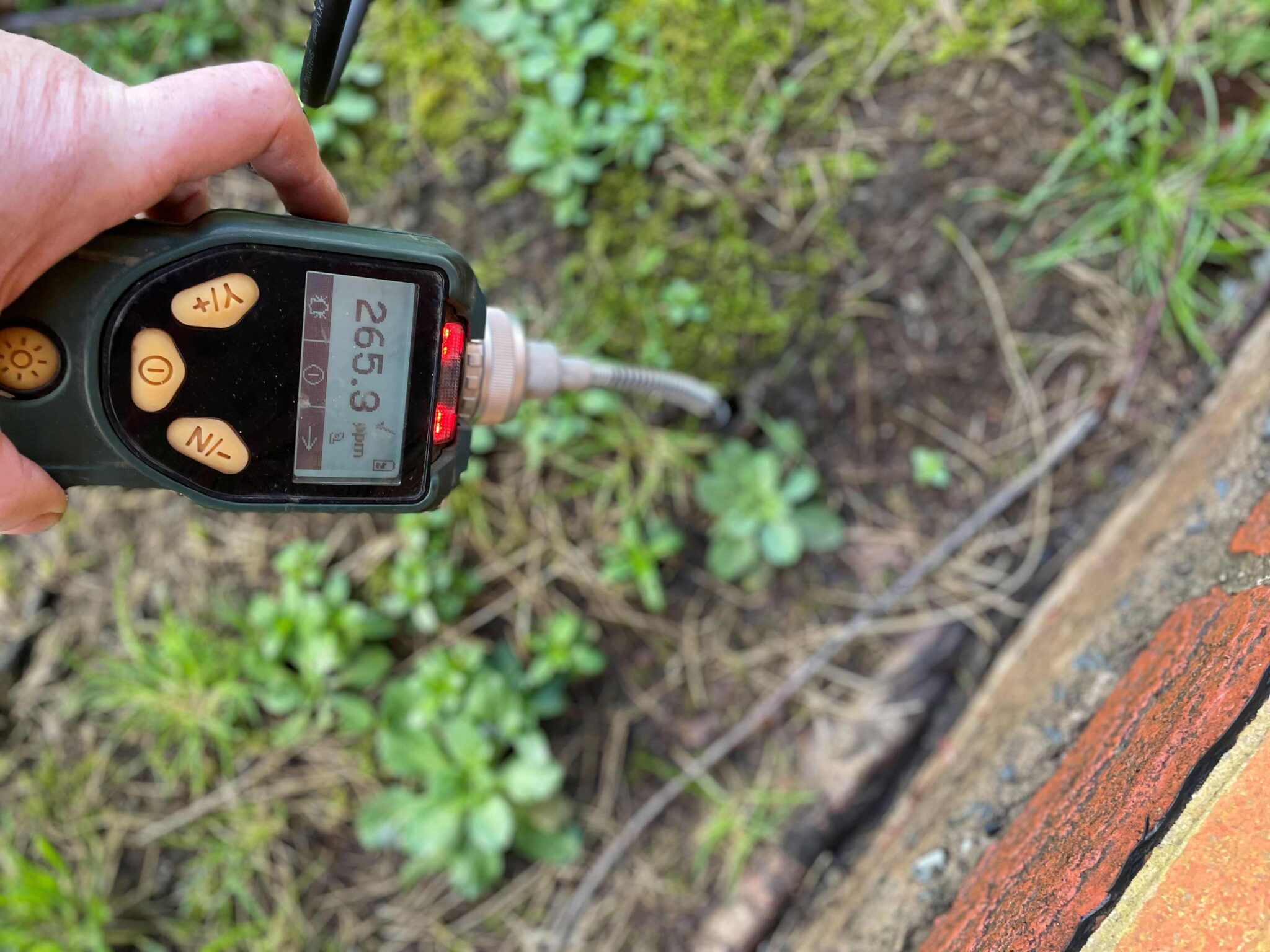Oil smell in your home?
Do you have an oil smell in your home, or an unexplained smell of furniture polish or something similar? Then you might be suffering from a spillage of home heating oil. First things first, go outside and check your boiler and tank. Give your initial attention to all the fittings at the tank and boiler, these are the most likely to be the cause.
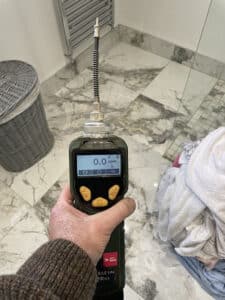
What to do first
What should you do first if you have an oil smell in your home? Investigate! Find out what’s going on, you can’t solve a problem unless you understand the problem.
If you find that some of your fittings are leaking, then turn off the oil supply at your tank. This will be a either red circular valve that you will need to turn, or a quarter turn lever. Shut off the oil supply then there is a good chance this will stop it getting worse.
You will then need to call a plumber / heating engineer who can fix the leak. Once this has been rectified you will be able to turn the oil supply back on again.
Tank splits can be temporarily dealt with by rubbing soap into any cracks you find and then call someone like us for immediate assistance.
Suspect that oil is being lost between the tank and boiler via the underground fuel pipe? Then you need to contact a plumber / boiler engineer as soon as possible, but turn off the fuel supply first.
When you can’t find a leak at your own property then two things could be in play:
- one of your neighbours’ has had a spill and the oil has migrated through the soils and fills to your home.
- vapour arising from contaminated soils are travelling through drains, sewers or a conduit / culvert and reaching your home.
Where you believe either if these two scenarios is occurring approach your neighbours’ and ask them to check their systems as well. If you or your neighbours’ feel unsure of yourselves get in contact with a remediation company for advice and assistance.
Will an oil smell in my home affect my health?
Ordinarily, we would say no. To adversely affect the health of a normally healthy adult the concentrations required are pretty high. Saying that, not everyone will have thee same tolerance or ability to cope with the effects of kerosene fumes. The very young, the very old or infirm will definitely find odour to be more of an issue. People with asthma or other respiratory issues will have even less of a tolerance.
So what can you do?
Oil Smell in your home – Ventilation
Open your windows at the front and rear of your home and allow air to travel through your home if you can. This will have a limited effect and is not going to solve your problem long term.
Oil Smell in your home – Call the experts
Call a company such as Gaea – Oil Spill Experts who know exactly what they are doing. This will take the guesswork out of everything, save money, save time and be a lot more efficient.
What will they do
Gaea – Oil Spill Experts will be able to put your mind at ease first and foremost! They will arrange a suitable time to come and see you which could be immediately if you require and emergency call out. They will mobilise all the required equipment, tools and expertise required.
Survey
When they arrive a full detailed survey will be conducted across your property. This is to determine where exactly the oil is and how it is impacting you and your family. A survey will normally take the form of a drilled borehole survey where a phot-ionization detector is used to screen the air in the boreholes for oil vapour content. A hand auger will normally be used alongside this to help determine the depth the oil has gone to.
Occasionally more intrusive sampling will be required and you may hear the terms “window sampling” or “drilling rig”. Normally these would not be recommended unless something in the drilled borehole survey suggests it is required. Both involve the driving of metal tubes deep into the ground to capture cores of soil. These cores can then be recovered and samples selected and sent for analysis. The benefit of this is that much deeper sampling can be achieved and physical samples recovered for analysis. The problem is that it is very expensive, intrusive and it is easy to miss contamination due to the limited numbers of samples.
VEU
One of the elements that will be determined in a survey is where is the contamination entering your home. If this can be accurately determined then it will be much easier to remove the oil smells from your home. This is done by installing a vapour extraction unit (VEU). A VEU is basically an air mover and it will need to be installed on the outside of your home, through the external wall into the voids below your floor boards if you have suspended floors, into the fill materials below your concrete sub-floors. The air in the voids or between the hardfill below your home will contain hydrocarbon vapour from the oil spill. The VEU will pull these to the exterior, preventing them from reaching the inside of your home. This won’t fix the problem, but its a nice easy way to give you a bit of relief from the odours.
Oil Smells in your home, How is it fixed?
The fastest and surest method is to remove any contaminated soils / fills from next to your homes foundations. If the material that gives rise to the smells is removed then there is nothing left to generate odours. This comes back to the need for a survey to determine exactly where the contamination is.
IF you would like to obtain some no obligation advice feel free to give Gaea a call and speak to an expert on 08000 541361.

